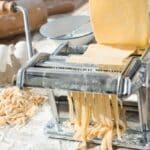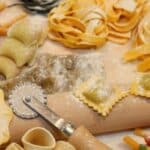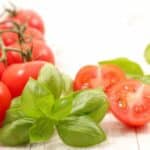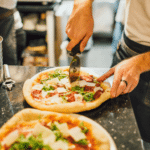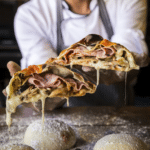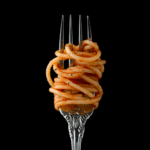When you think of Italian food, one thing probably comes to mind: pasta. With all of the varieties of pasta, sauces, and dishes, pasta has become a symbol of Italian culture. This is something many Italians take great pride in, as it has become the most popular main course dish in the world. It’s no secret that pasta has become incredibly important to Italian culture, not only for Italians but also for people worldwide.
But why is pasta so important to Italian culture? Though it may seem like just a humble noodle, the art of making, eating, and enjoying pasta has come to embody so many values of Italian culture as a whole. Take a look at some of the reasons why pasta is one of the most important symbols of Italian culture:
But why is pasta so important to Italian culture? Though it may seem like just a humble noodle, the art of making, eating, and enjoying pasta has come to embody so many values of Italian culture as a whole. Take a look at some of the reasons why pasta is one of the most important symbols of Italian culture:
- History. For starters, pasta has a deeply rooted history in Italian culture. Starting in the Middle Ages, the first professional Italian pasta shops began popping up in Southern Italy. Slowly, Italians were able to export pasta all over the world, and soon there were large-scale pasta factories in Naples, Genoa, and Salerno. Eventually, there were so many pasta shops in Italy that the Pope established the Corporations of Pasta, and ruled that there could not be more than 1 pasta shop within more than 50 meters of each other to avoid conflicts between shopkeepers. It’s easy to see how the love and history of pasta has rooted itself in Italian culture when you look at history this way!
- Family. One of the pillars of Italian culture is family and the importance of spending time together. Making and eating pasta together as a family is just one of the few ways that Italians do this– that’s why you’ve probably heard so much about Italian grandmothers spending hours making and cooking pasta for the whole family! By mixing, kneading, rolling, and cutting out pasta dough, older generations can pass on family traditions to the younger generations, and spend quality time with each other even with busy schedules. Then, families can take their time eating together.
- Home. You could walk into any restaurant in any part of the world, and likely find a pasta dish on the menu. This is because of the ease to boil and import/export pasta. The easy access meant that no matter where Italians were in the world, they could always have a piece of their distant homeland with them. From here, people were able to make their own cultural version of pasta, such as the Spanish fideua, German spaetzle, or even American macaroni and cheese.
- Value. Italians prioritize the art of ‘arrangiarsi’, or making the best out of anything. In cuisine, pasta is an easy way to make the most out of what you have, regardless of economic status. Pasta is easy and cheap to make, and many different sauces are born from just a handful of ingredients, like pasta carbonara or pasta amatriciana. With just a few ingredients, Italians can create an affordable and delicious meal that can provide nutritional value and sustenance.
- Diversity. As one of the most diverse countries in Europe, both environmentally and biologically, Italians have come to highly value diversity in their culture. This diversity is reflected in Italy’s different towns and cities, with different dialects and cultures, and has furthered itself into different types of pasta shapes and dishes. Though all of these dishes have a base of pasta and sauce, the range and diversity of pasta dishes are far and wide.
Whatever you’re craving, get your fix of Italian food from Carpaccio! From traditional pasta dishes and salads to Napoletana pizza, Carpaccio serves delicious Italian cuisine with ingredients sourced locally in California. Enjoy a candlelit dinner in a beautiful, Tuscan atmosphere, or a wonderful family dinner out on Carpaccio on the Alley. Take a look at our menu and visit our website to learn more, or give us a call at 650-322-1211.
Sources:
https://pastaevangelists.com/b…
https://ma-vi-trade.it/en/past…
https://www.subtlefoodie.com/b…



